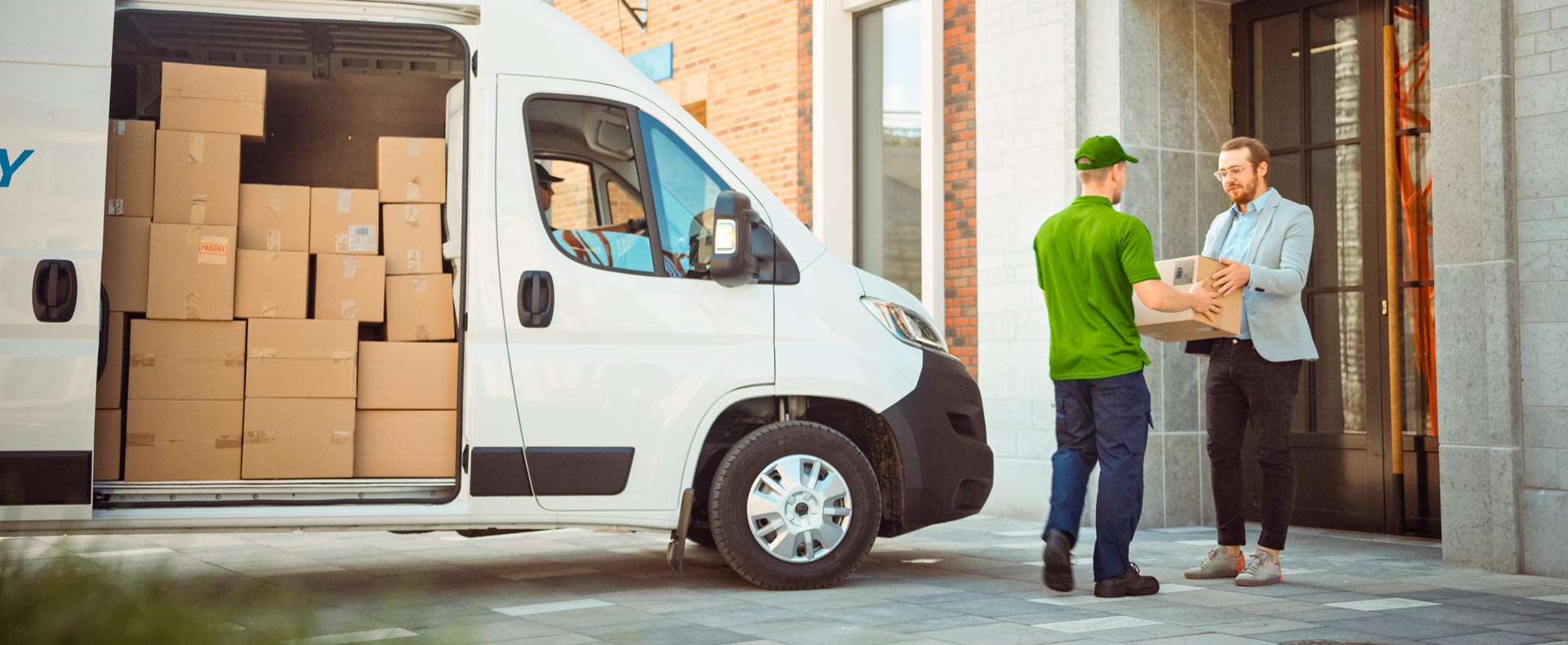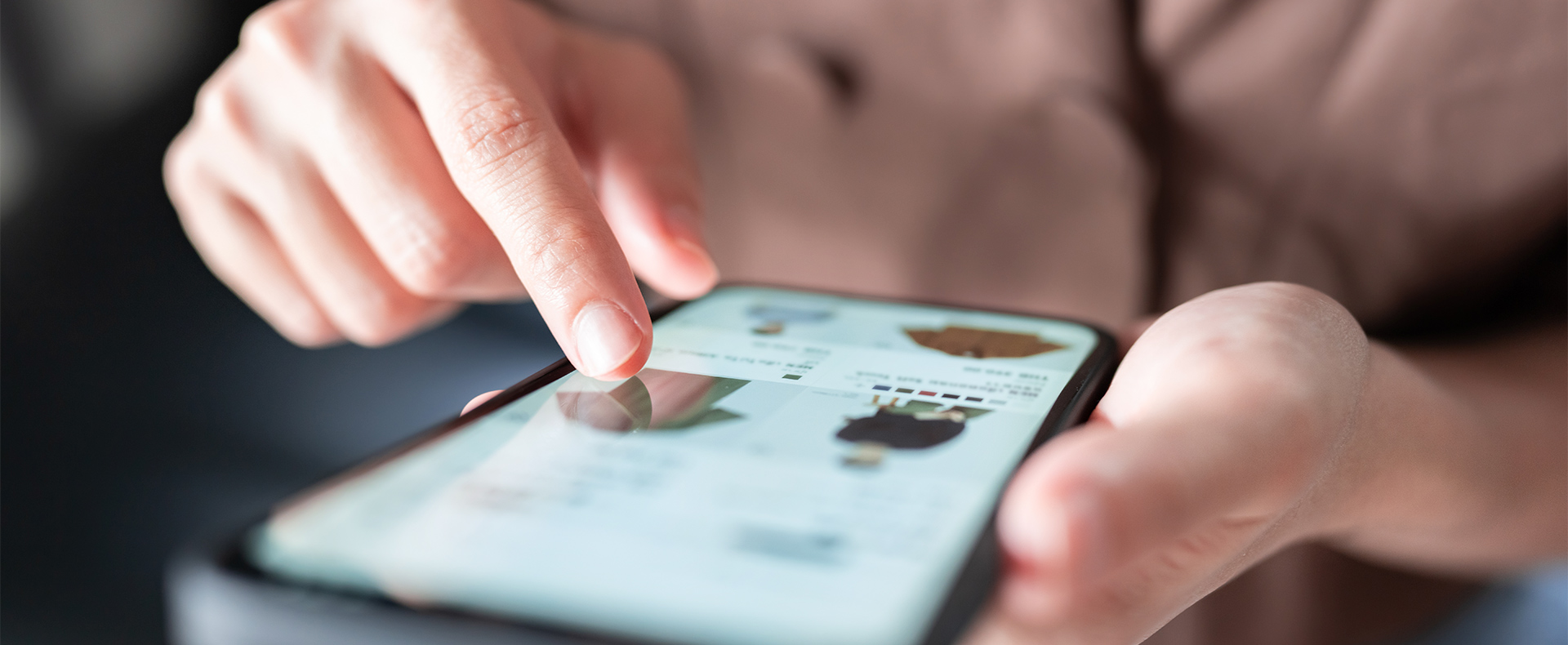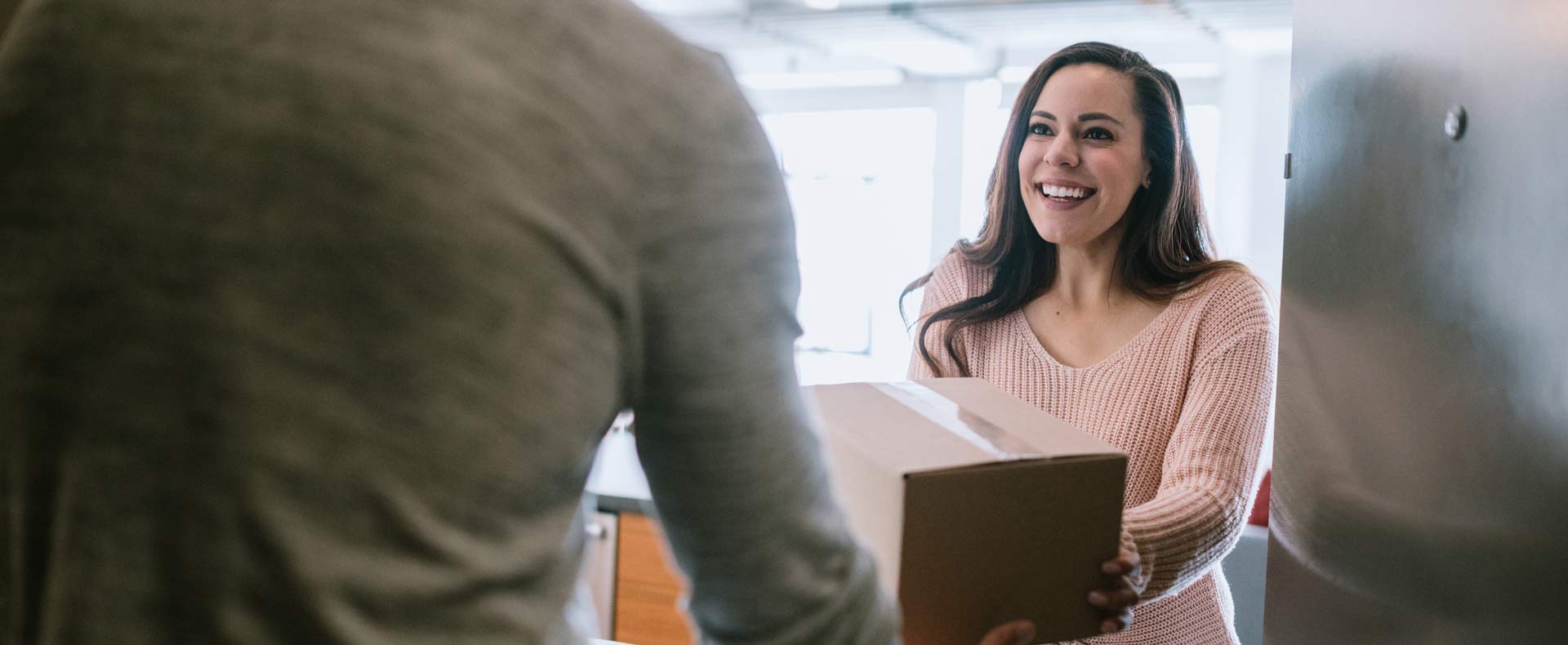National Earth Day: Advice for Sustainable Business Practices from Business Owners
In honor of National Earth Day on April 22nd, we connected with a handful of online business owners who are passionate in their pursuit of sustainable business practices.
We’re sharing tips, wisdom, and encouragement on going green in business from eco-minded entrepreneurs.
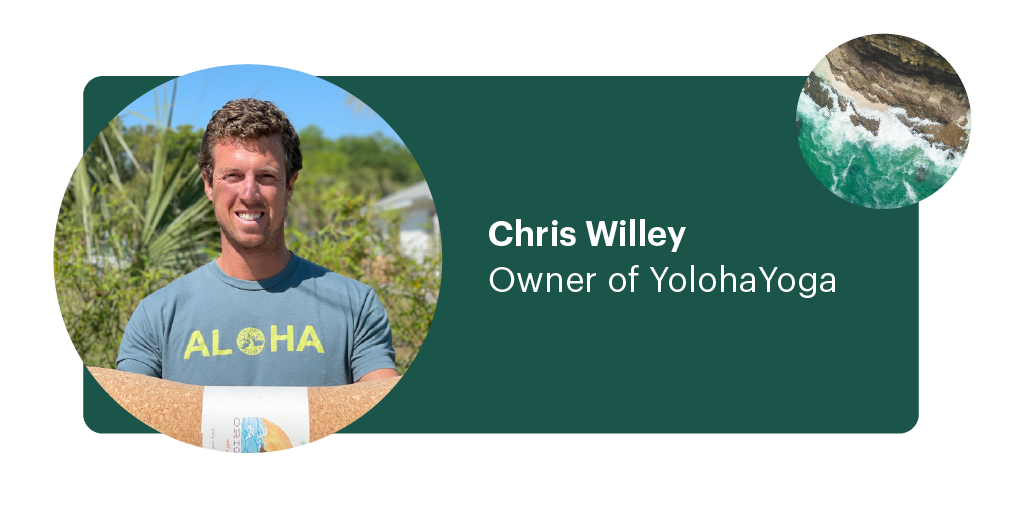
How has Yoloha Yoga had an impact in the field and practice of sustainability?
Chris: “Seven years ago we developed and introduced the cork yoga mat to the market. Since then I feel like we have brought a lot of awareness to consumers about the sustainability of cork and its benefits in yoga. There are a lot of myths and misconceptions about cork and it feels good to be able to educate the public on these. For yoga practice, cork is naturally antimicrobial so it’s easy to keep your mat clean and it provides a non-slip surface even when you are sweating on your mat.”
How do you incorporate sustainability within your products?
Chris: “Besides using cork on all our products, we ship using only 100% recycled or recyclable cardboard and kraft paper. We never use single-use plastic. When products need to be shipped to us from our suppliers we worked with them to develop a packing method that uses the least amount of materials which is mostly cardboard and a small amount of plastic. To help offset our carbon emissions from shipping, Yoloha is a member of carbonfund.org supporting reforestation/forest preservation carbon offset projects.”
Why is it so important for businesses to consider sustainability when it comes to their business practices?
Chris: “Not only are you helping to make a cleaner earth for future generations, but consumers are much more educated these days on sustainable business practices. Yes, it does take more time and effort, but taking that extra step goes a long way towards growing your business. You will feel good knowing you’re making a difference.”
What piece of advice would you share with a business owner looking to go green?
Chris: “Going green is not as hard as you might think. Spend a day going through your materials and workflow. Ask yourself, does this product actually need to be wrapped in single-use plastic? Am I using recycled paper for labels? You might surprise yourself. Your customers, and our planet, will be happier for it.”
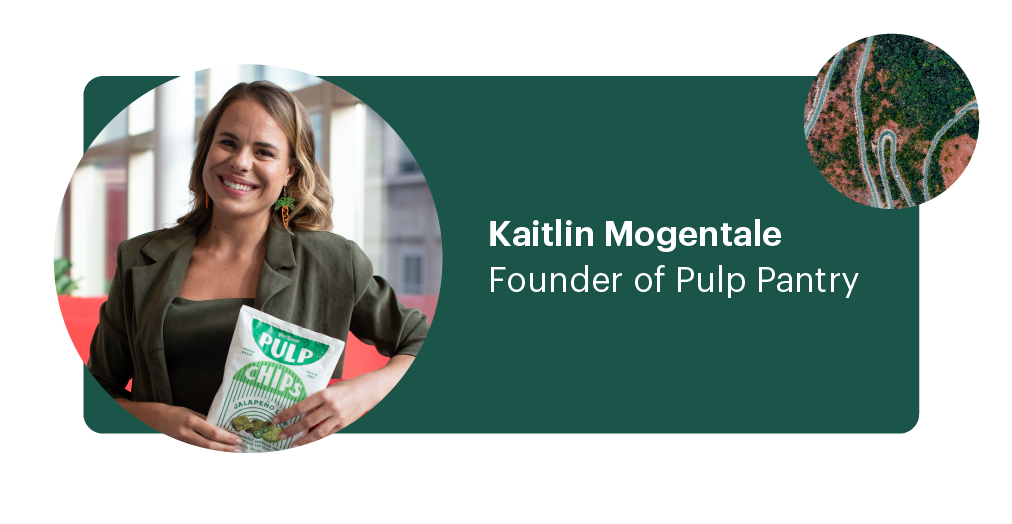
How has Pulp Pantry had an impact in the field and practice of sustainability?
Kaitlin: “Pulp Pantry works with suppliers that have a significant volume of produce that goes to waste each week – either due to cosmetic rejections, quality rejections, or byproduct material that doesn’t get used in production (like juice pulp!). Last year, we upcycled over 50,000 lbs of produce, mainly organic cold-pressed vegetable byproduct, amounting to over 37098 kg of greenhouse gases (CO2-e) kept out of our atmosphere, 4,776,773 litres of water saved (used to grow and process our food), and 133,622 sq feet of land that was used to grow that food. This year, we’re on track to increase our impact and look forward to creating a larger dent in the food that goes to waste.”
How do you incorporate sustainability within your products?
Kaitlin: “Our products are nearly 50% upcycled, which means that half of our ingredients come from suppliers that would normally be throwing food in the landfill or sending it out to compost/ animal feed. In this way, we’re able to keep vital nutrition in our food system – namely, the fruit and vegetable fiber that creates our high-fiber Pulp Chips. Our chips are made with upcycled vegetables as the first ingredients and have nearly 5x the fiber of other chips on the market. They’re a real veggie chip that functions like your favorite junk foods!”
What piece of advice would you share with a business owner looking to go green?
Kaitlin: “As business owners, we can take stock of all of the aspects of how we receive, pack and transport our items. At every step of the way, there’s a more sustainable swap available. We package everything outgoing in 100% paper-based materials, so that there’s no question about recyclability. We tell a story behind our choices: like smaller packaging sizes to reduce packaging waste, unbranded boxes to increase recyclability, etc. I think the storytelling piece will make your customers happy – to see that you’re making intentional choices to address your company’s footprint and conduct a lifecycle analysis of your business.”
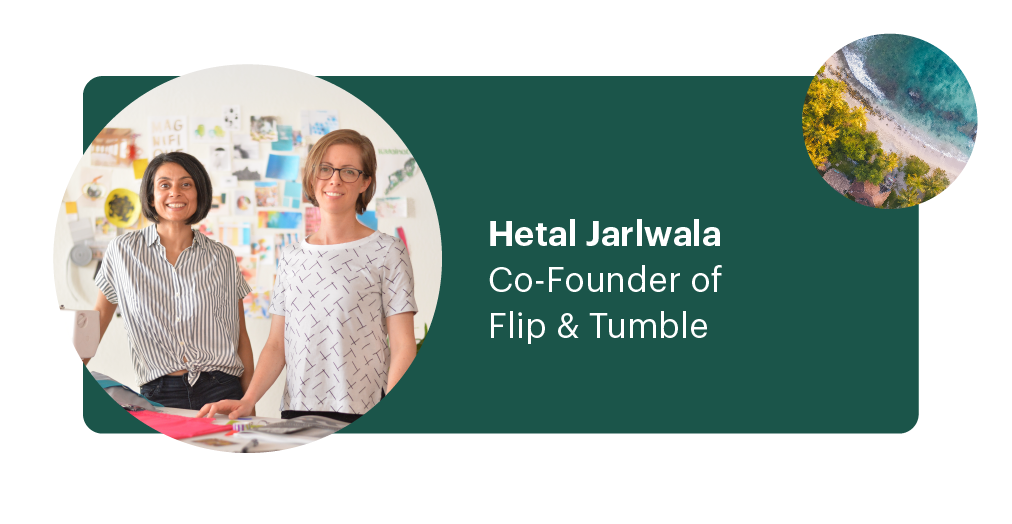
How has Flip & Tumble had an impact in the field and practice of sustainability?
Hetal: “When Flip & Tumble was founded back in 2007, we noticed that the idea of reusable bags was starting to take off. However, shoppers were often forgetting to bring their reusable bags with them. Since we’ve started, we estimate that our bags have helped save 19 million disposable plastic bags from the landfill. While using reusable bags is one small step that all of us can take, we also think it helps to get people thinking more consciously about their resource use.”
How do you incorporate sustainability within your products?
Hetal: “Material choice is a big element in the design of our products. When possible and practical, we opt to use recycled materials. It’s pretty exciting that our waste materials, such as discarded plastic bottles, can get a second life in the form of our bags. Even more important to us than material choice is ensuring that our bags are designed to have a long useful life. This means using quality materials and construction methods, and really thinking through the design. We recognize that good design can make the difference between a product that gets used day in and day out versus one that ends up sitting in the back of a closet.”
What piece of advice would you share with a business owner looking to go green?
Hetal: “I think customers are looking for green options and ways to reduce their footprint. I believe business owners shouldn’t shy away from challenging the norm and doing things differently. Going green is going to look different for every business.”
Do you think sustainable practices will only become increasingly important?
Hetal: “Yes, I think there is an increasing awareness that our environmental practices today will effect our weather, our ecosystems, and ultimately human health down the road. As a result of this awareness, there’s also a shift to more urgency around solutions. It’s an exciting time to not only be able to contribute, but to see what other solutions will emerge.”
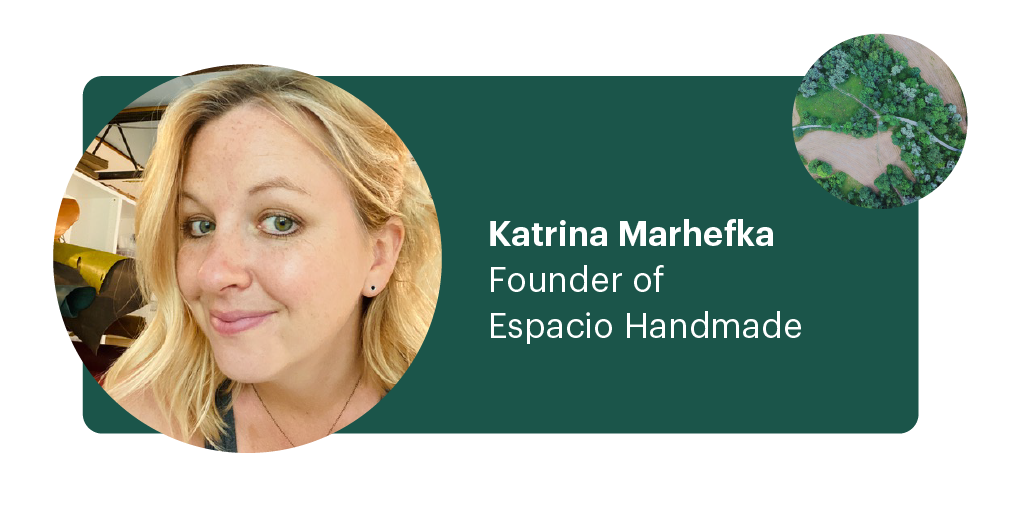
How has Espacio Handmade had an impact in the field and practice of sustainability?
Katrina: “I often get questions and comments about my choice to work with leather. It’s important to me to honor the material I use by minimizing waste and using scrap leather to make more products. The leather I use is a by-product of the food industry and the animal-work industry. Without a leather industry, hides from both of these markets would most likely end up in a landfill.”
How do you incorporate sustainability within your products?
Katrina: “Real leather is considered a slow-fashion material because of its ability to withstand wear and tear. A well-made leather garment or accessory can last decades, thus keeping waste out of landfills. When leather does hit the landfill, it biodegrades at a rapid pace compared to most leather alternatives. Veg-tan leather (the leather I use for products like my Luggage Tags, Hip Flasks, and Keychains) is made using ancient techniques that tan the hide using nontoxic, naturally-derived plant chemicals. Veg-tan leather biodegrades without leaching chemicals into the soil. While there is no perfect solution, it is my opinion that using real leather to create long-lasting products is the best way to make use of the meat industry & animal-work industry by-products and keep everyday accessories out of the landfill.”
What advice would you give to businesses looking to go green/implement more sustainable practices?
Katrina: “As a designer who focuses on solving problems, curbing waste was another way to engage my creative problem-solving. I make every effort to weave resource efficiency into my craft. I don’t just think of a wallet as a singular item, but rather a piece of a whole system that I have created. I can tell you that when you buy a cord keeper, a key chain, or a bookmark, you are literally keeping leather resources from hitting the landfill and joining me in an effort to weave efficiency & sustainability throughout the leather industry. Small efforts and tiny steps can make a big impact on your environmental footprint!”
Thank you to all of the incredible business owners who generously offered their wisdom on sustainability. Here’s to taking small, conscious steps towards going green in business and in life.

